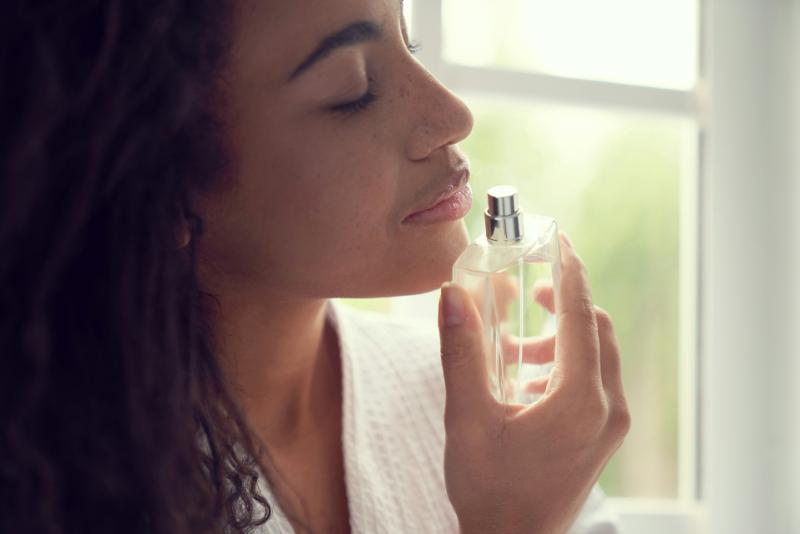Navigating the world of scents and fragrances when you have sensitive skin can be tricky. The quest to smell good without triggering skin irritation or allergic reactions is a common challenge for many.
Fortunately, there are strategies and products designed to provide that pleasant scent without compromising skin health. This blog post will explore five practical ways to stay fragrant while keeping sensitive skin happy and irritation-free.

Choose Hypoallergenic Fragrances
When you have sensitive skin, choosing a fragrance is all about finding one that doesn’t cause irritation. Hypoallergenic fragrances are created with this in mind, offering scents that minimize the risk of skin irritation and allergies. These hypoallergenic perfumes are formulated without many of the harsh chemicals found in traditional perfumes, making them a safer choice for sensitive skin types.
Hypoallergenic doesn’t mean scent-free, though. These products often contain subtle, natural scents that can provide a refreshing and lasting fragrance without overpowering the senses. They are carefully designed to deliver a gentle yet effective scent.
When shopping for hypoallergenic fragrances, look for products labeled as dermatologist-tested, free from common allergens like parabens, sulfates, and phthalates. Many brands also provide transparent ingredient lists, allowing you to avoid specific irritants known to affect your skin.
Use Unscented Body Products with a Light Perfume
Layering your bath and body products can be a game-changer, especially for those with sensitive skin. Starting with unscented body products as your base can prevent the potential clash of fragrances and reduce the risk of skin irritation. Unscented body washes, lotions, and deodorants provide the necessary personal care without the added fragrances that often lead to discomfort.

Once you’ve applied your unscented products, you can then add a touch of your favorite perfume or cologne. Spraying it onto your clothing rather than directly on your skin can help create a pleasant scent without exposing your skin to potential irritants. This method allows you to control the intensity of the fragrance and its contact with your skin, ensuring you can enjoy smelling good without compromising skin health.
Keep Your Clothes Clean
Regular clothing care plays an important role in how you smell. That means that clothes should be washed regularly to make sure they’re free of sweat and dirt. For those with sensitive skin, using fragrance-free, hypoallergenic laundry detergents is the best choice. Homemade detergents can work great, too. These detergents clean effectively without leaving behind a strong scent or irritating chemicals, making your clothes feel fresh and comfortable to wear.
Also, the type of clothing you wear can impact both your scent and skin health. Avoiding overly restrictive clothing is advisable, as tight garments can trap sweat and bacteria, leading to unpleasant odors and potential skin irritation. Choose breathable fabrics and well-fitting clothes that allow air circulation, helping to keep your body cool and minimizing the risk of odor-causing bacteria buildup.
Try Essential Oils for a Natural Scent
Natural oils can be a wonderful alternative to synthetic fragrances. Ingredients like lavender, chamomile, and rose are known for their soothing properties their gentle, pleasant aromas. These natural fragrances can provide a sense of calm and well-being, in addition to their subtle scent.
However, it’s important to approach natural products with a bit of caution. Even natural ingredients can cause reactions in sensitive skin types, so you have to do a patch test before applying an oil, and in many cases, you also need a carrier oil to protect the skin first. Apply a small amount to a discreet area of skin and wait to see how your skin reacts over the next 24 hours. If there’s no adverse reaction, you can feel more confident using the product more liberally.
Incorporating these natural scents into your routine can be as simple as adding a few drops of oil to your bath, using scented natural soaps, or applying a diluted oil as a personal fragrance. These methods allow you to enjoy the benefits of a pleasant scent without overwhelming your skin with harsh chemicals.
Maintain Good Hygiene and Skin Care
At the core of smelling good, even with sensitive skin, is the practice of good hygiene and skin care. Regular bathing with gentle, unscented or hypoallergic products removes dirt, sweat, and bacteria that can lead to body odor. After bathing, applying a suitable moisturizer can help protect the skin barrier, preventing dryness and irritation.

Choosing the right skin care products is imperative for those with sensitive skin. Look for products labeled as “for sensitive skin,” “hypoallergenic,” or “fragrance-free” to reduce the risk of irritation. These products are specifically formulated to provide the necessary care without harsh ingredients that can disrupt skin health.
Maintaining a consistent skin care routine helps to fortify the skin’s natural defenses, leading to healthier skin that is less prone to irritation and odors. By prioritizing good hygiene and appropriate skin care, you can achieve a naturally fresh scent and comfortable skin, providing a solid foundation for adding fragrances in a way that respects your skin’s sensitivity.

